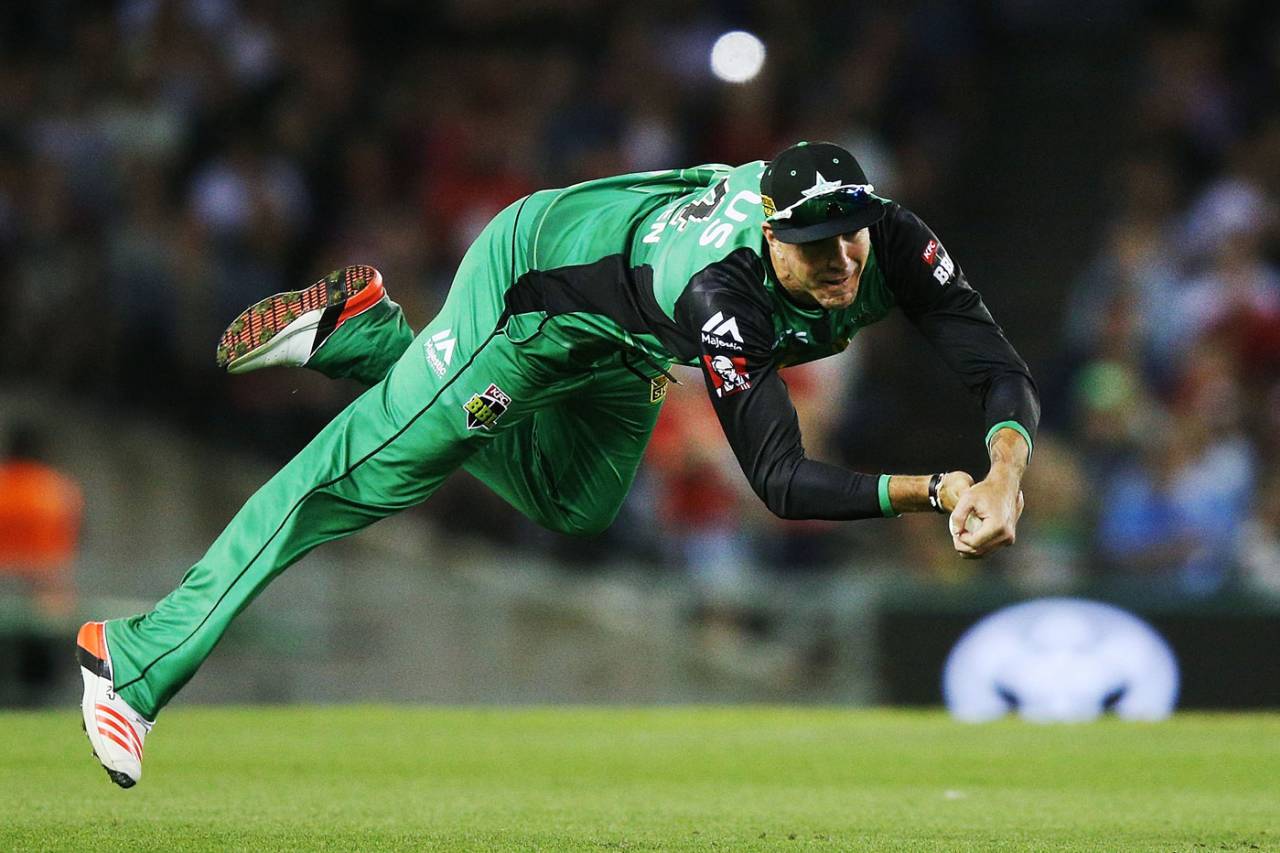Melbourne Stars' endless struggle
With several players misfiring and a few released for national duty, Melbourne Stars have lurched from one defeat to another this season

Getty Images

Jarrod Kimber is a writer for ESPNcricinfo. @ajarrodkimber
With several players misfiring and a few released for national duty, Melbourne Stars have lurched from one defeat to another this season

Getty Images

Jarrod Kimber is a writer for ESPNcricinfo. @ajarrodkimber